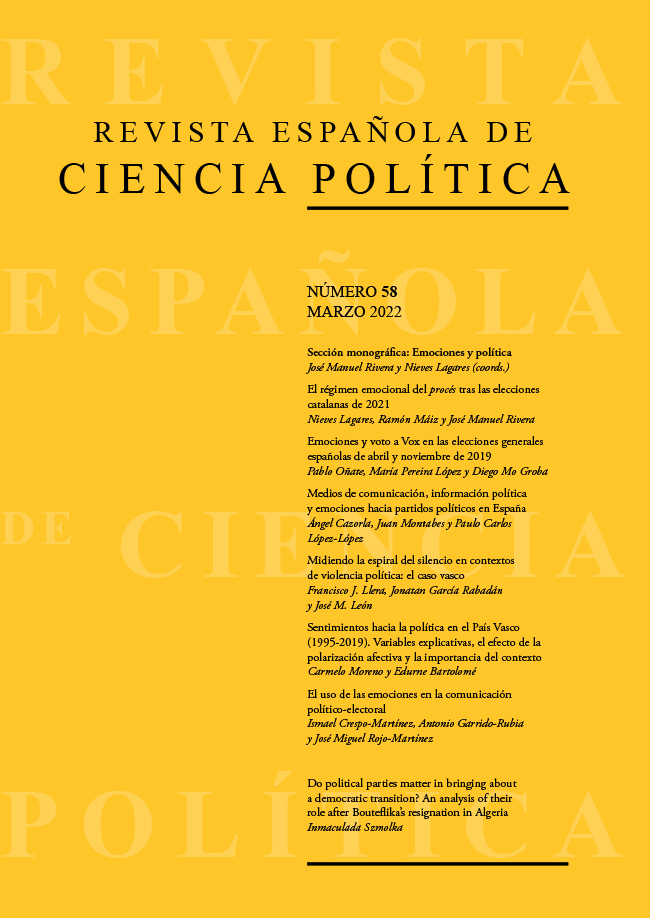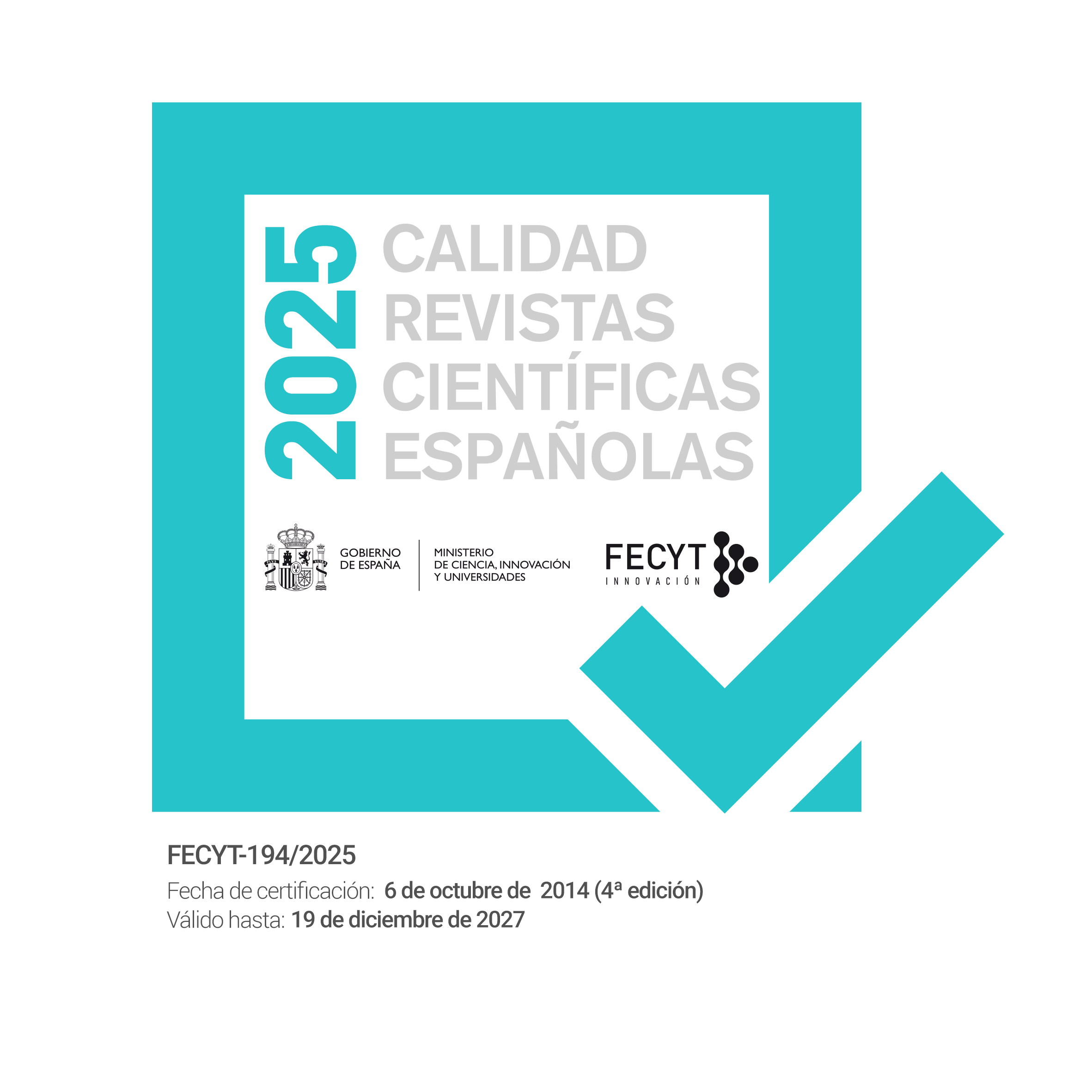EMOCIONES Y POLÍTICA (Introducción)
Resumen
Sin resumen
Descargas
Citas
Basinger, Scott J. y Howard Lavine. 2005. «Ambivalence, information, and electoral choice», American Political Science Review, 99 (2): 169-184. Disponible en: https://doi.org/10.1017/S0003055405051580.
Greene, Steven. 2005. «The Structure of Partisan Attitudes: Reexamining Partisan Dimensionality and Ambivalence», Political Psychology, 26 (5): 809-822. Disponible en: https://doi.org/10.1111/j.1467-9221.2005.00445.x.
Ladd, Jonathan M. y Gabriel S. Lenz. 2008. «Reassessing the Role of Anxiety in Vote Choice». Political Psychology, 29 (2): 275-296. Disponible en: https://doi.org/10.1111/j.1467-9221.2008.00626.x.
Lara, Alí y Giazú Enciso. 2013. «El giro afectivo». Athenea Digital, 13 (3): 101-119. Disponible en: https://doi.org/10.5565/rev/athenead/v13n3.1060.
Lodge, Milton y Charles Taber. 2000. Three steps toward a Theory of Motivated Political Reasoning, en Arthur Lupia, Matthew D. McCubbins y Samuel L. Popkin (eds.), Elements of reason: Cognition, choice, and the bounds of rationality. Cambridge University Press. Disponible en: https://doi.org/10.1017/CBO9780511805813.009.
Máiz, Ramón. 2010. «La hazaña de la razón: la exclusión fundacional de las emociones en la teoría de la política moderna», Revista de Estudios Políticos (nueva época), 149: 11-45
Marcus, George E. 2002. The sentimental citizen: Emotion in democratic politics. Penn State University Press.
Marcus, George. E., Michael B. MacKuen, Jennifer Wolak y Luke Keele. 2006. «The measure and mismeasure of emotion», en David P. Redlawsk (ed.), Feeling politics. Nueva York: Palgrave Macmillan. Disponible en: https://doi.org/10.1057/9781403983114_3.
Marcus, George E. y Russel Neuman, W. 2011. «Parsimony and complexity: Developing and testing theories of affective intelligence», Political Psychology, 32 (2): 323-336. Disponible en: https://doi.org/10.1111/j.1467-9221.2010.00806.x.
Marcus, George E., W. Russell Neuman y Michael Mackuen. 2000. Affective intelligence and political judgment. Chicago; Londres: University of Chicago Press.
Marcus, George E., W. Russell Neuman y Michael Mackuen. 2007a. «Inteligencia afectiva y juicio político. Primera parte». Sociológica, 63 (22): 253-266.
Marcus, George E., W. Russell Neuman y Michael Mackuen. 2007b. «Inteligencia afectiva y juicio político. Segunda parte». Sociológica, 64 (22): 241-267.
Marcus, George E., W. Russell Neuman y Michael Mackuen. 2017. «Measuring emotional response: Comparing alternative approaches to measurement», Political Science Research and Methods, 5 (4): 733-754. Disponible en: https://doi.org/10.1017/psrm.2015.65.
Marcus, George E., John L. Sullivan, Elizabeth Theiss‐Morse y Daniel Stevens. 2005. «The emotional foundation of political cognition: The impact of extrinsic anxiety on the formation of political tolerance judgments», Political Psychology, 26 (6): 949-963. Disponible en: https://doi.org/10.1111/j.1467-9221.2005.00452.x.
Mouffe, Chantal. 2003. «Le politique et la dynamique des passions». Politique et Sociétés, 22 (3): 143-154. Disponible en: https://doi.org/10.7202/008854ar.
Nussbaum, Martha. 2015. Political emotions: Why love matters for justice. Cambridge, MA: The Belknap Press.
Taber, Charles S., Milton Lodge y Jill Glathar. 2001. «The motivated construction of political judgments», en James Kuklinski (ed.), Citizens and politics: Perspectives from Political Psychology. Cambridge: Cambridge University Press. Disponible en: https://doi.org/10.1017/CBO9780511896941.010.
Westen, Drew. 2007. The political brain: The role of emotion in deciding the fate of the nation. Nueva York: Public Affairs Books.
Publicado
Cómo citar
Número
Sección
Licencia
Derechos de autor 2022 Jose Manuel Rivera; Nieves Lagares

Esta obra está bajo una licencia internacional Creative Commons Atribución-NoComercial-SinDerivadas 4.0.






